Featured
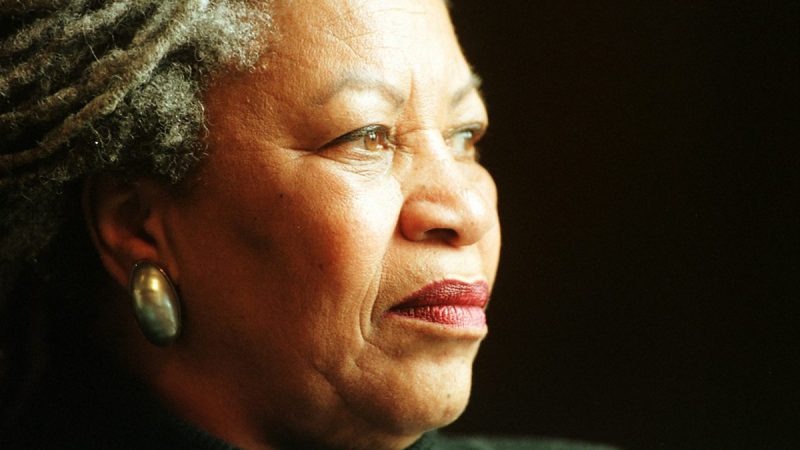 Virginia governor race highlights irony of banning ‘Beloved’ from schools. By Dana A. Williams / NBC News
Virginia governor race highlights irony of banning ‘Beloved’ from schools. By Dana A. Williams / NBC News
“124 was spiteful. Full of baby’s venom.”
These lines open Toni Morrison’s magnum opus “Beloved”and give the reader fair warning that the story is about something haunting. But what “Beloved” represents is a haunting in itself. The novel never lets us forget that the past is ever-present. That’s part of the reason the book is considered not only part of the canon of Black literature but American literature as a whole. But it’s also why people are trying to keep it out of public schools.
If “Beloved” teaches us anything at all, it is that, in fiction and in fact, exorcisms of the past are complicated. The past has lessons to teach us, and literature, in general, gives us a safe place to work out the contradictions of the past in ways that can inform the future. Morrison’s word-play with the line,“This is not a story to pass on,” at the end of the novel is telling. This is indeed not a story to opt out of or to skip, and the lived experiences of the story is one that shouldn’t be passed down to future generations — but if it’s not dealt with in the present, the past (however vile) will continue to haunt us. Read more
Related: Glenn Youngkin vs. Toni Morrison. By Charles M. Blow / NYT
Political / Social
 The Biden Administration Doesn’t Take Voter Suppression Seriously. By Jason Linkins / TNR
The Biden Administration Doesn’t Take Voter Suppression Seriously. By Jason Linkins / TNR
In a few weeks, the president will convene a virtual “Summit on Democracy,” which will bring together world leaders to “galvanize commitments and initiatives” from attendees on how to “defend against authoritarianism.” In a year, President Biden will gather the same group “to showcase progress made against their commitments.” It’s worth wondering whether, a year from now, the president will have any progress of his own to showcase—or anything, really, that might demonstrate to the rest of the world that he actually takes the preservation of democracy seriously. Read more
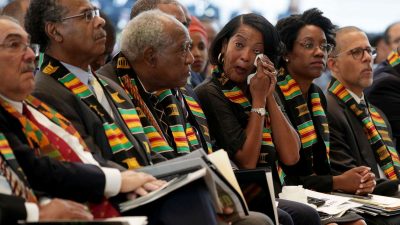 Black Caucus emerges as winner in spending package. By Marty Johnson / The Hill
The $1.75 trillion framework agreement for President Biden’s “Build Back Better” plan represents a significant victory for Black lawmakers, who have been adamant that promises made to Black communities be kept by the White House. The framework included key priorities of the Congressional Black Caucus (CBC), including funding for historically Black colleges and universities, an increased child tax credit, affordable housing, universal childcare and pre-k and Medicare expansions. Read more
Black Caucus emerges as winner in spending package. By Marty Johnson / The Hill
The $1.75 trillion framework agreement for President Biden’s “Build Back Better” plan represents a significant victory for Black lawmakers, who have been adamant that promises made to Black communities be kept by the White House. The framework included key priorities of the Congressional Black Caucus (CBC), including funding for historically Black colleges and universities, an increased child tax credit, affordable housing, universal childcare and pre-k and Medicare expansions. Read more  In a setback for Black Lives Matter, mayoral campaigns shift to ‘law and order.’ By Tim Craig / Wash Post
In a setback for Black Lives Matter, mayoral campaigns shift to ‘law and order.’ By Tim Craig / Wash Post
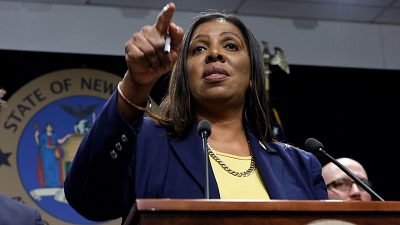 NY Attorney General Letitia James announces run for governor. By Aaron Katersky / ABC News
NY Attorney General Letitia James announces run for governor. By Aaron Katersky / ABC News
Letitia James, the attorney general of New York whose sexual harassment investigation led to the resignation of former Gov. Andrew Cuomo, announced a run for governor Friday, mounting a formidable primary challenge to Kathy Hochul, the state’s first female governor. James could become the state’s first Black governor and the nation’s first Black female governor. Read more
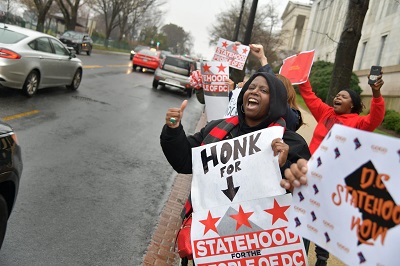 D.C. statehood is a voting rights issue. By Michael D. Brown / Wash Post
D.C. statehood is a voting rights issue. By Michael D. Brown / Wash Post
This month, the Supreme Court affirmed a lower-court ruling that D.C. residents do not have a constitutional right to voting representation in Congress. Again the court made it clear, as it did in Adams v. Clinton, that we have nothing to litigate; our fight is political. How do you declare something unconstitutional when it is, in fact, authorized by the Constitution? This is a bare-knuckle partisan political street fight, and looking for loopholes is not going to get us anywhere — and neither is politely knocking on the door of Congress. Read more
 Ideologues exist on the left and the right. Only one side threatens the country. By Michael Gerson / Wash Post
Ideologues exist on the left and the right. Only one side threatens the country. By Michael Gerson / Wash Post
If the American experiment dies, the cause will be terminal bothsidesism. This is not to deny that our politics is ideologically bipolar. There is a party of the left that advocates ambitious government and progressive social values. There is a party of the right that defends limited government and conservative social virtues. The differences between the sides concern the largest matters of penury or prosperity, sickness or health, death or life.
Only one political movement has made a point of denying the existence and legacy of racism, assuring White people that they are equally subject to prejudice, and defending the Confederacy and its monuments as “our heritage.” This is perhaps the ultimate in absurd bothsidesism. My side suffers from economic stagnation and the unfair application of affirmative action. Your side was shipped like coal and sold like cattle; suffered centuries of brutality, rape, family separation and stolen wages; and was then subjected to humiliating segregation and the systematic denial of lending, housing and justice. Who can say which is worse? Read more
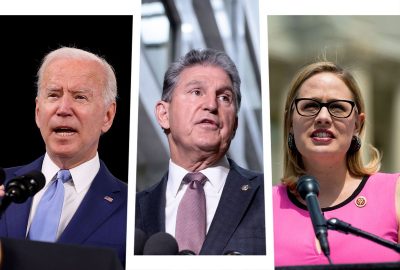 Fighting to preserve Trump’s legacy: Manchin and Sinema cement his only legislative achievement. By Heather Digby Parton / Salon
Fighting to preserve Trump’s legacy: Manchin and Sinema cement his only legislative achievement. By Heather Digby Parton / Salon
Joe Biden was scheduled to fly off to the United Nations Climate Change conference on Thursday morning but delayed the trip long enough to go up to Capitol Hill to tell the House Democrats that an agreement had been reached on a “framework” for his big Build Back Better bill. He told Democrats on the Hill, “I don’t think it’s hyperbole to say that the House and Senate majorities and my Presidency will be determined by what happens in the next week.” No pressure there. But he’s right. You would think they already know that, but apparently, it had to be said. Read more
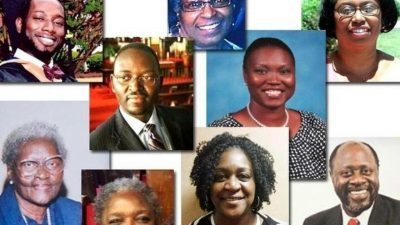 Families Of Charleston Shooting Victims Reach $88 Million Settlement With Justice Dept. Sarah Ruiz-Grossman and Ryan J. Reilly / HuffPost
Families Of Charleston Shooting Victims Reach $88 Million Settlement With Justice Dept. Sarah Ruiz-Grossman and Ryan J. Reilly / HuffPost
The Justice Department reached an $88 million settlement with the survivors and families of the victims of the 2015 massacre at Mother Emanuel AME church in Charleston, South Carolina. DOJ announced Thursday that the family members of those killed in the mass shooting would get $6-7.5 million each and the survivors $5 million each. The settlement is one of the largest civil rights settlements in history. Read more
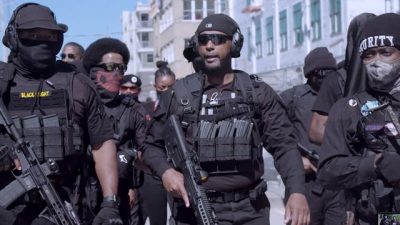 For Black and Latino gun owners, being armed “evens the playing field.” By Grace Baek / CBS News
For Black and Latino gun owners, being armed “evens the playing field.” By Grace Baek / CBS News
P.B. Gomez is a 23-year-old law student at the UC Berkeley School of Law interested in urban environmental justice policy. He’s also the founder of the Latino Rifle Association (LRA), a politically progressive organization for Latino gun owners with left-leaning values who want to exercise their Second Amendment rights. “Gun culture in the United States is largely toxic, and it’s not welcoming,” said Gomez. And he believes gun rights are for everyone: “I don’t believe self defense, which is fundamentally about bodily autonomy, should be exclusive to people on the right politically.” Read more
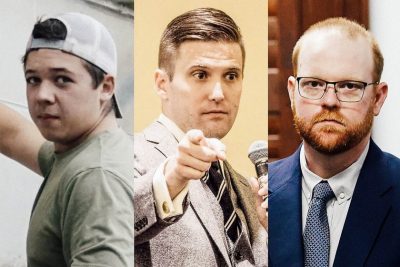 Charlottesville, Rittenhouse, McMichael: How three trials in America reveal the brokenness of our justice system. By Nicole Lewis and Dahlia Lithwick / Slate
Charlottesville, Rittenhouse, McMichael: How three trials in America reveal the brokenness of our justice system. By Nicole Lewis and Dahlia Lithwick / Slate
There are three separate trials unspooling across the country this week, each of which tells some version of the same story about the inadequacies of the American legal system to contend with racial justice. Each illuminates the ways in which even the most basic precepts of the justice system rely on whiteness, and its suspicion of the very existence of racism, as a proxy for neutrality or objectivity. Shown are Kyle Rittenhouse, Richard Spencer, Travis McMichael. Read more
 How Big Tobacco made menthol racial. By Mary Elizabeth Williams / Salon
How Big Tobacco made menthol racial. By Mary Elizabeth Williams / Salon
Keith Wailoo opens his engrossing new book with a vintage Dave Chapelle sketch, and a line from an imagined quiz show called “I Know Black People.” A contestant just has to answer a question, “Why do Black people love Menthols so much?” She gets it right with her response — “I don’t know.” It’s a clever setup for the author’s social — and often and personal — answer to that question, a history of the evolution of targeted tobacco marketing, and how the industry strategically created a demand and then peddled their product to Black America. Its a story with roots that stretch back a century, through the political movements of the sixties through the death of Eric Garner and right up to the present day — just this year, the Biden administration sparked controversy by announcing a proposed ban on the flavoring in cigarettes. Read more
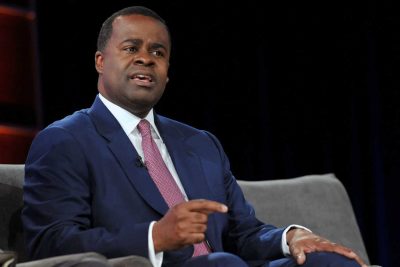 Atlanta, long known as the seat of Black economic and political power, votes on its future in mayoral election. By Tim Craig and Vanessa Williams / Wash Post
Atlanta, long known as the seat of Black economic and political power, votes on its future in mayoral election. By Tim Craig and Vanessa Williams / Wash Post
 Derek Chauvin jurors speak out for first time about George Floyd’s murder. By Ray Sanchez / CNN
Derek Chauvin jurors speak out for first time about George Floyd’s murder. By Ray Sanchez / CNN
Months after convicting the former Minneapolis Police officer who murdered George Floyd, jurors describe the trial as a life-altering experience that still haunts them. It was their first and only interview since finding Derek Chauvin guilty in April of second-degree unintentional murder, third-degree murder and second-degree manslaughter. Seven jury members told CNN’s Don Lemon their verdict in the most important trial of the Black Lives Matter era was based solely on the evidence, not their views on race. The gruesome video of Chauvin pressing his knee on Floyd’s neck for more than nine minutes as the Black man cried out that he couldn’t breathe is seared into their minds, they said. Some have sought counseling and therapy. Read more
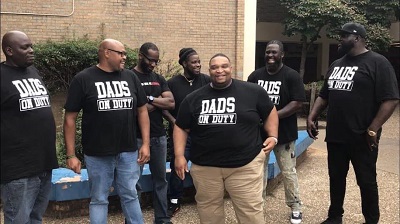 Kids were fighting in school. Dads began patrolling campus, and the violence stopped. By Sydney Page / Wash Post
Kids were fighting in school. Dads began patrolling campus, and the violence stopped. By Sydney Page / Wash Post
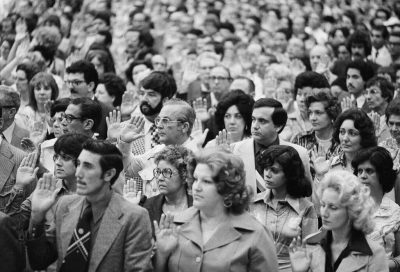 Facing Up to the Racist Legacy of America’s Immigration Laws. By Reece Jones / NYT
Facing Up to the Racist Legacy of America’s Immigration Laws. By Reece Jones / NYT
The searing images of Border Patrol agents on horseback charging at unarmed Haitian men and women shocked many Americans last month, including President Biden. Jen Psaki, the White House press secretary, said, “He believes the footage and photos are horrific. They don’t represent who we are as a country.” Many Democrats made the same argument during the Trump administration, condemning a series of harsh anti-immigrant policies, from the Muslim ban to the separation of children from their families, as “not who we are” and “not what America represents.”Read more
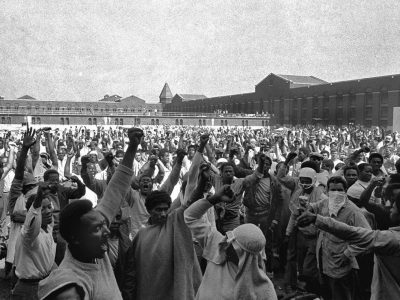 How the Attica prison uprising started — and why it still resonates today. By Dave Davies / NPR
How the Attica prison uprising started — and why it still resonates today. By Dave Davies / NPR
Fifty years ago, Attica maximum security prison in upstate New York was infamous for its harsh conditions. Prisoners were issued one roll of toilet paper each month. Asking for more meant risking a beatdown. Arthur Harrison, who was sentenced to five years in Attica in 1971, says Black prisoners were treated especially severely. “It reminded me of the things I used to hear about on plantations in slavery,” he says. “They treated us like we weren’t human.” On Sept. 9, 1971, tensions boiled over as more than 1,000 prisoners, including Harrison, revolted, seizing 39 guards as hostages and gaining control of the prison. Documentary filmmaker Stanley Nelson tells the story of the uprising in his new film, Attica. Read more
 Torpedoing Black Radicalism: The Case of Hugh Mulzac. By Tony Pecinovsky / AAIHS
Torpedoing Black Radicalism: The Case of Hugh Mulzac. By Tony Pecinovsky / AAIHS
It was late October 1942. The crew of the Liberty Ship Booker T. Washington had just “lashed down the last crate of deck cargo.” Like other World War II Liberty Ships, they were ready to make the perilous journey into German submarine infested waters. This ship, crew, and captain were different, though. At the helm of the Booker T. was the African American British West Indies born Hugh Mulzac, the first man of color to command a U.S. Merchant Marine ship, six years prior to the formal end of segregation in the U.S. armed forces. Additionally, the Booker T. was fully integrated, something Mulzac had insisted upon as a condition of taking command. Read more
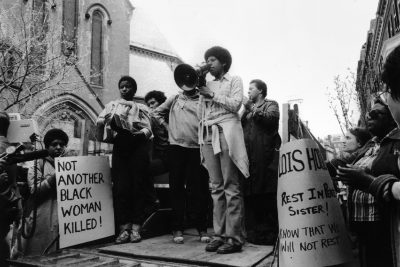 “If Black Women Were Free”: An Oral History of the Combahee River Collective. By Marian Jones / The Nation
“If Black Women Were Free”: An Oral History of the Combahee River Collective. By Marian Jones / The Nation
The collective recognized the necessity of working across race, gender, sexual orientation, and class while emphasizing the contributions of queer Black feminists to Black liberation and feminism. The group’s political strategy was to form coalitions with other activist groups while retaining their independence as Black women. They were socialists who rejected capitalism and imperialism, but wrote in their declaration that they were not convinced that “a socialist revolution that is not also a feminist and anti-racist revolution will guarantee our liberation.” Read more
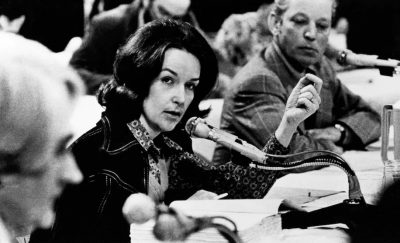 Debate over teaching books by Black authors has roots in violent 1974 clash in West Virginia. By Sarah Posner / Wash Post
Debate over teaching books by Black authors has roots in violent 1974 clash in West Virginia. By Sarah Posner / Wash Post
In June 1974, in accordance with new federal education guidelines that public schools include in their curriculums writings by and about people of color, the school board took under consideration a new set of textbooks for the district. Moore objected to language arts textbooks she claimed would teach students “ghetto dialect” instead of “standard American speech.” She opposed including, as an optional text for a high school Advanced Placement class, former Black Panther Eldridge Cleaver’s prison memoir, “Soul on Ice.” Other parents in Moore’s circle objected to works by Langston Hughes as “anti-Christian” and by James Baldwin as “anti-White.” White parents tried to enlist Black parents in the school district to join them, arguing that Black parents should not want such negative portrayals of their community taught to White students. Even an elementary school reading book, with an illustration of a White girl handing a bouquet of flowers to a Black boy, was the target of White parents’ ire. Read more
 Yes, anti-lynching laws are mostly symbolic. That’s what makes them important. By Theodore R. Johnson / Wash Post
Yes, anti-lynching laws are mostly symbolic. That’s what makes them important. By Theodore R. Johnson / Wash Post
A hundred years ago, Warren Harding, now mostly remembered for the Teapot Dome bribery scandal and his extramarital affairs, delivered what was arguably the first condemnation of lynching in a presidential address. The summer had brought a spate of racist terrorism that then typified life in parts of America. Just a few months earlier, the Tulsa race massacre destroyed and burned Black communities, resulting in hundreds of casualties and thousands of Black families left homeless. In June, law enforcement in Moultrie, Ga., handed over John Henry Williams to a lynch mob who burned him alive at the base of the tree after he was accused of killing a young White girl, despite an alibi and his claims of innocence in the hastily assembled kangaroo court.
But a century later, lynching is still not a federal crime in the United States. The nation’s continued failure to reject, in statute, lynching’s specific political and social meaning reflects a stubborn unwillingness to confront its greatest shortcomings. That failure is a testament to both the lack of widespread political and public will as well as the creative use of technocratic procedures, such as the filibuster and cloture, to block anti-lynching legislation. Read more
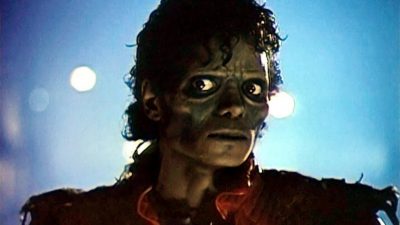 They put a spell on us: Black musicians and spooky tunes for Halloween. By Denise Oliver Velez / Daily Kos
They put a spell on us: Black musicians and spooky tunes for Halloween. By Denise Oliver Velez / Daily Kos
As folks across the nation and their kids celebrate Halloween with trick or treating, costumes, candy, and spooky tales, let’s get into the mood this Black Music Sunday with an appropriate soundtrack to accompany your day’s activities. Whether it’s jazz, blues, R&B, pop, or funk, Black musicians have been weaving spells, invoking hoodoo, superstitions, and witchcraft into tunes that may not scare you, but could raise the dead and make skeletons dance. Soo! Get on up and shake those bones! No Halloween would be complete without Michael Jackson’s Thriller, which was both an album and a song. Released on Nov. 30, 1982 and produced by Quincy Jones, Thriller is still the bestselling album worldwide. Read more
 Jay-Z Is Inducted Into the Rock & Roll Hall of Fame. By Jon Blistein / Rolling Stone
Jay-Z Is Inducted Into the Rock & Roll Hall of Fame. By Jon Blistein / Rolling Stone
Jay-Z, one of rap’s most innovative and trailblazing stars, was inducted into the Rock & Roll Hall of Fame Saturday, Oct. 30th. The rapper earned his Rock Hall spot on his first year of eligibility, as his debut album, Reasonable Doubt, turned 25 in 2021. Over the past two-and-a-half decades, Jay has regularly set the standard in hip-hop and pop culture writ large, from classic albums like The Blueprint and The Black Album, to timeless hits like “Hard Knock Life,” “Big Pimpin’,” “Izzo,” “Empire State of Mind,” and “The Story of O.J.”
And while his discography is untouchable, Jay has also been a pioneer outside the music realm. He became hip-hop’s first billionaire in 2019 thanks to his dealings in fashion, sports, and music streaming. In recent years, he’s also used his platform to become one of music’s most prominent voices for criminal justice reform. Read more
Sports
 At World Series, Atlanta Finally Gets Its Tribute to Hank Aaron. By David Waldstein / NYT
At World Series, Atlanta Finally Gets Its Tribute to Hank Aaron. By David Waldstein / NYT
A few moments after fans at Truist Park did their customary tomahawk chop chant, which many see as a racist gesture that insults Indigenous people, they gave a standing ovation to Billye Aaron, the widow of Hank Aaron, during a pregame tribute to the Hall of Fame player who died in January. Aaron’s courageous pursuit of Babe Ruth’s career home run record in the face of racist abuse made him a pioneering symbol of progress for many Black Americans. His death unleashed an outpouring of love and tributes throughout baseball and the country. Raynal Aaron, Hank Aaron’s grandson, left, joined three of the Hall of Famer’s children on the mound before Game 3 on Friday: Hank Aaron Jr., second from left, who threw out the ceremonial first pitch, and two of his sisters, Gaile and Dorinda Read more
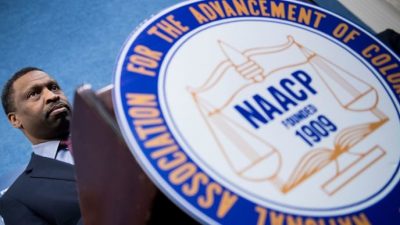 NAACP calls on professional athletes to not sign with Texas sports teams. By Jonathan Franklin / NPR
NAACP calls on professional athletes to not sign with Texas sports teams. By Jonathan Franklin / NPR
The NAACP is urging athletes in major sports to consider not signing with professional teams in Texas in response to the state’s voting and abortion laws and its ban on mask requirements. Leaders of the NAACP issued an open letter Thursday to players associations for the NBA, NFL, WNBA, MLB and NHL. The NAACP leaders called Texas’ laws “a blueprint by legislators to violate constitutional rights for all,” and asked free agents to reconsider moving their families to a state that is “not safe for anyone.” Read more
 HBCU-Power Five partnerships seek to accomplish ‘more than just scheduling games.’ By Glenn A. Hill / Wash Post
HBCU-Power Five partnerships seek to accomplish ‘more than just scheduling games.’ By Glenn A. Hill / Wash Post
Morgan State Athletic Director Edward Scott felt major college programs were recognizing the benefits of partnering with historically Black colleges and universities before May of last year. Northwestern had reached out to organize a 2020 football game with his school because he said its athletic director wanted to be more inclusive in its scheduling. Howard men’s basketball was slated to host Notre Dame this past January, and the University of Mississippi last year scheduled its first football game against an HBCU, planned for 2028 against Alcorn State. “What I hope is that it’s not a news story anymore,” Scott said of the recent announcements, which both detail multiyear scheduling agreements. “I hope that it’s something that happens on a regular basis where folks expect it: When is Morgan playing Syracuse? When is Howard playing Syracuse? Right now, it’s a news story because we haven’t done it before.” Read more
 New Netflix series on Kaepernick is a ‘springboard’ to conversations on race, privilege. By Amna Nawaz and Anne Azzi Davenport / NPR
Acclaimed film director Ava Duvernay, whose projects include “The 13th,” “When They See Us,” and “Selma”, is behind a new Netflix series called “Colin in Black and White.” It is the coming of age story of Colin Kaepernick, years before he became a quarterback in the NFL, and a leader in the fight for racial justice. Amna Nawaz spoke with DuVernay about it for our arts and culture series, CANVAS. Read more
New Netflix series on Kaepernick is a ‘springboard’ to conversations on race, privilege. By Amna Nawaz and Anne Azzi Davenport / NPR
Acclaimed film director Ava Duvernay, whose projects include “The 13th,” “When They See Us,” and “Selma”, is behind a new Netflix series called “Colin in Black and White.” It is the coming of age story of Colin Kaepernick, years before he became a quarterback in the NFL, and a leader in the fight for racial justice. Amna Nawaz spoke with DuVernay about it for our arts and culture series, CANVAS. Read more Site Information
Visit our home page for more articles, book/podcast and video favorites. And at the top of this page register your email to receive notification of new editions of Race Inquiry Digest. Click here for earlier Digests.
About Race Inquiry and Race Inquiry Digest. The Digest is published on Mondays and Thursdays.
Use the buttons below to share the Digest in an email, or post to your Facebook, Linkedin or Twitter accounts.